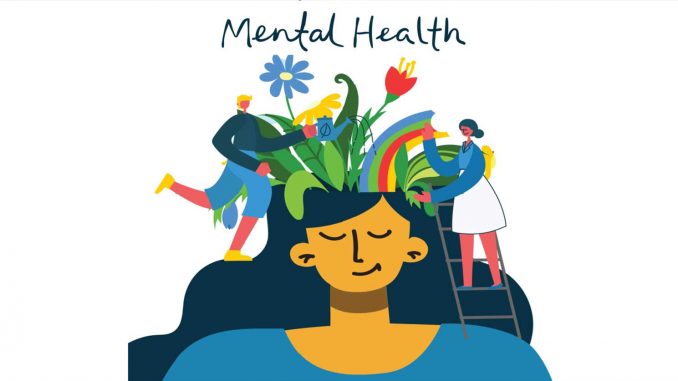
Ashley Hopkins, Staff Writer |
Mental health has become a topic of discussion for students all across the world as they started their journeys of distance learning; But what about the mental health of the people who teach these courses?
A common feeling between all of the professors interviewed was that they missed the energy and the connection that online learning isn’t able to give. “While it can be difficult to be the only one with your camera on and to teach to a sea of blank screens on Teams, at least I get to hear the students’ voices and read what they have to say in the chat,” said Dr. Laura Felschow, a Media Studies professor.
After logging off for the day, students would do their assignments and likely forget about their classes until the next meeting time. This was not the case for professors. After teaching their classes, professors would then have to grade all of their assignments as well. This is also what they did with in-person classes, but after dealing with tech issues and struggling to get students to turn on their microphones and cameras, they were exhausted. So, what did they do to help themselves de-stress?
Dr. Sheena Mason, an African American Literature professor, who is new to SUNY Oneonta, said that she is much better at balancing her work life and her personal life. She is making it a point to do more self-care and make time for herself. She also said that spending time with friends and family helps her when things get stressful.
Dr. Kathryn Finin and Dr. George Hovis, both English professors, like to get outdoors for self-care. Hovis said that he spent his free time sailing on Otsego Lake and taking walks on the trail to College Camp. Finin said that she likes to get together with friends and have socially distant bonfires.
Support systems are important as they can help when life gets a little hard. Typical support systems include family and friends, but what if you’re in a situation when those you rely on for support aren’t close by?
We are fortunate enough to live in a time where it is easy to connect with people from all over the globe. Felschow moved from Austin, Texas just one year before the start of the pandemic. She said, “I mainly rely on texting and Zooming with other friends who work within academia at other universities and commiserating with other academics on Twitter.” Even if you don’t have friends or family close by, social media platforms make finding those people who you resonate with a little bit easier.
We all appreciated the scheduled Wellness Days throughout the online semesters. Finin said that she appreciated them because “it was a concrete acknowledgment of the strain of the situation. I used the Wellness Days really consciously to not work and spent a lot of time talking to students about things to do other than work. We talked about trying out meditation, hiking, and finding places just to sit outside. We just worked a lot on strategies for how to de-stress.” While she doesn’t think scheduled Wellness Days could work this year due to schedule demands, she said that she “would hope the college will continue to work with faculty and students and staff on wellness. I don’t think the academic world has paid a lot of attention to that.”
Finin also brought up an interesting point. Stress and anxiety management is like a muscle; to build and maintain muscle, you constantly have to work at building that strength, and practice. Find the processes that work for you when controlling stress and anxiety. Deep breathing, meditation, talking to friends and loved ones, doing an activity you love before going back to work are all good ways to relieve stress. It’s okay to have off-days where you don’t feel as strong. Ultimately, you will find the thing that works best for you.
While there may not be scheduled Wellness Days, make it a priority to take care of your mental health. Take a break when your work is overwhelming and come back refreshed. Make it a priority to nourish a good work/life balance. Most importantly, communicate with your professors! Everyone is in the same boat, and we can sympathize with one another after everything we have been through. Prioritize your mental health. Your brain– and grades– will thank you.
Leave a Reply